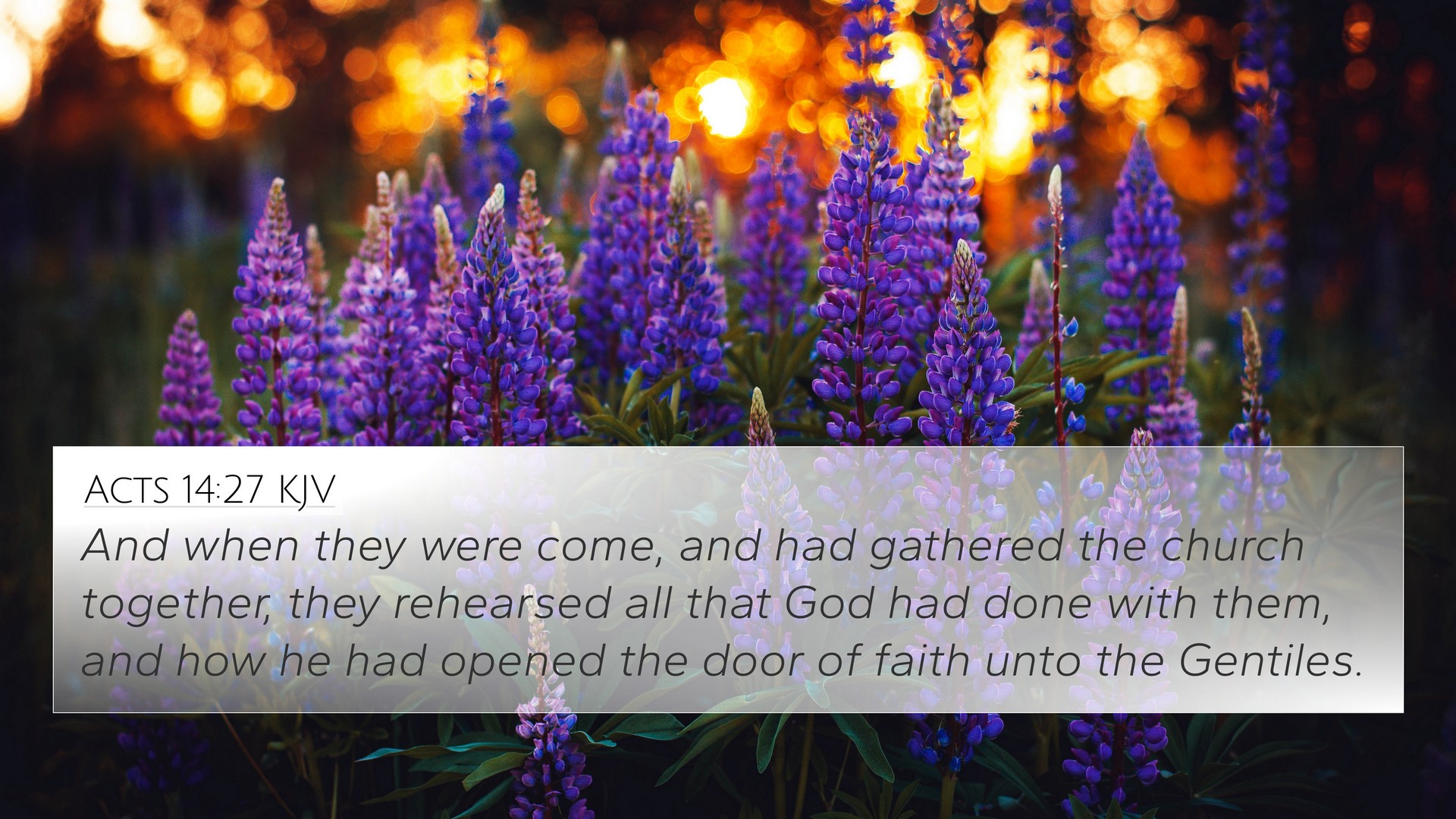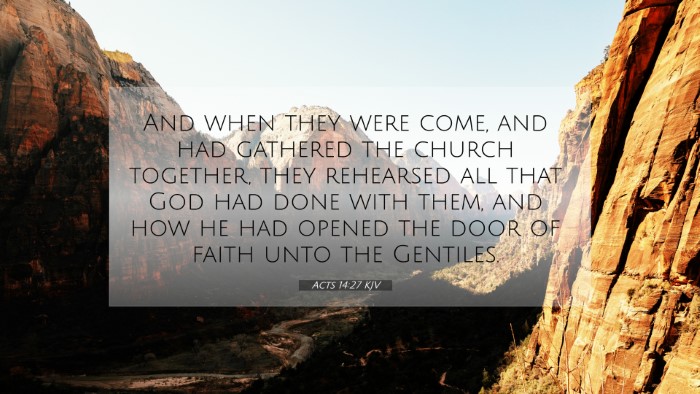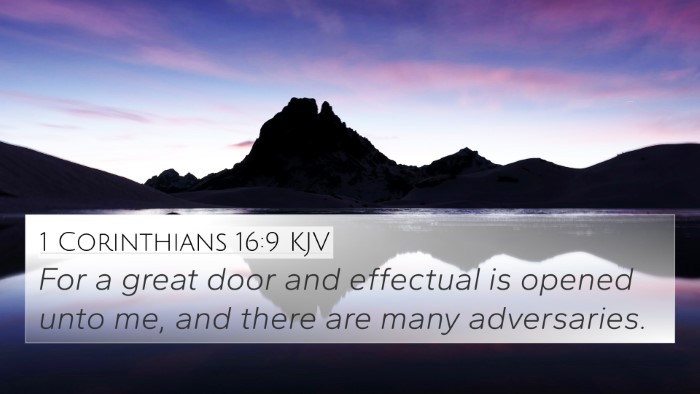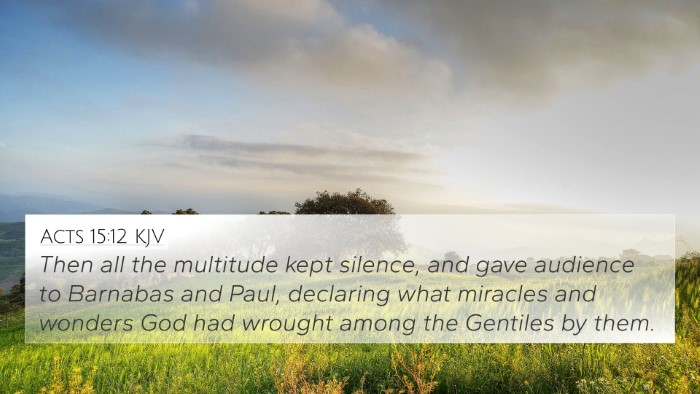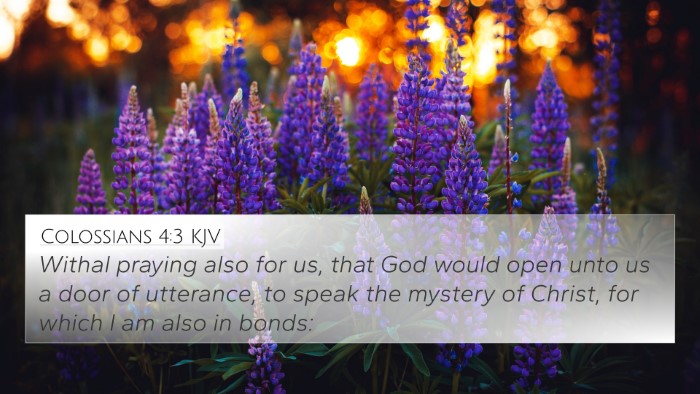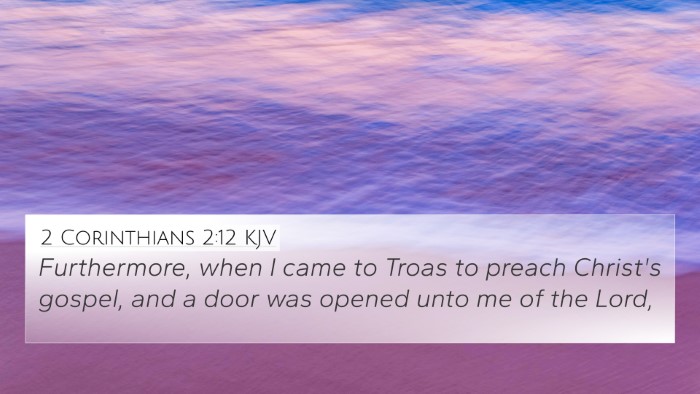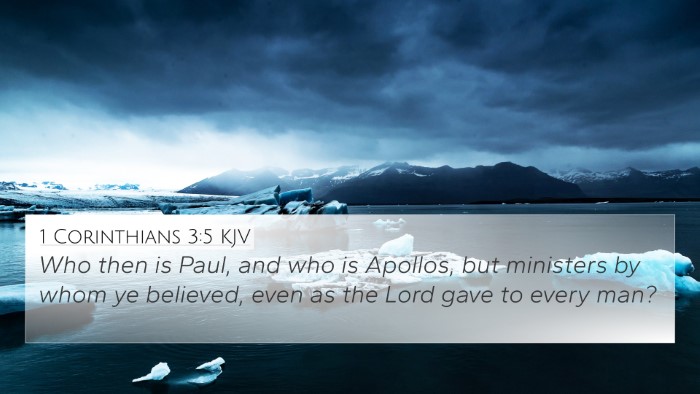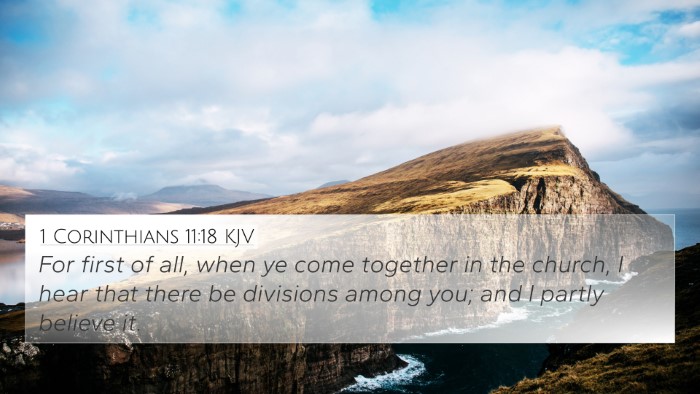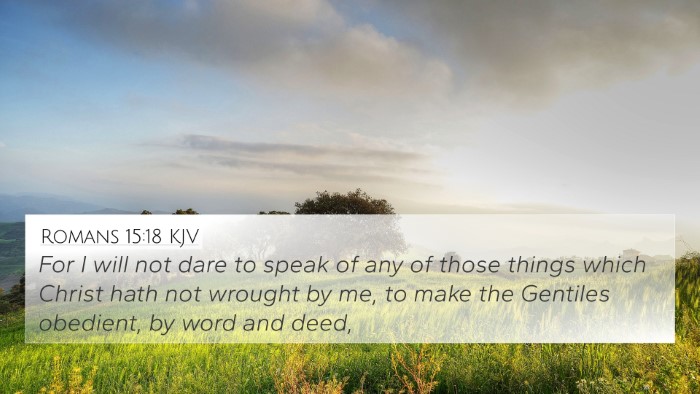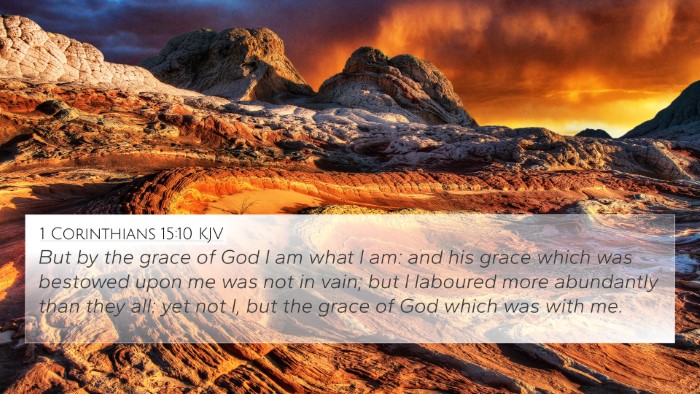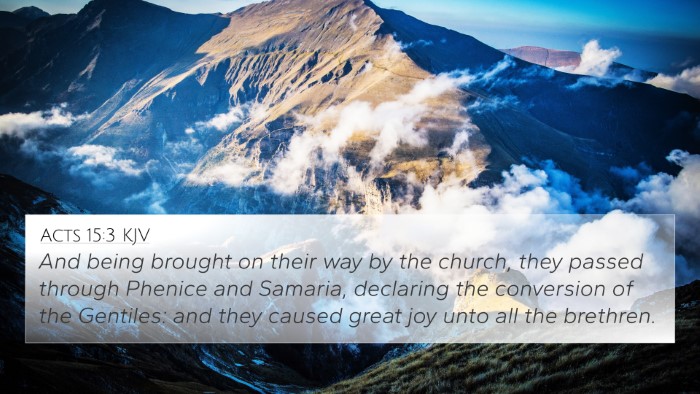Understanding Acts 14:27
Acts 14:27 (KJV): "And when they were come, and had gathered the church together, they rehearsed all that God had done with them, and how he had opened the door of faith unto the Gentiles."
This verse captures a significant moment in early Christianity, where the apostles Paul and Barnabas return to Antioch after their mission—sharing the news of their ministry among the Gentiles.
Meaning and Insights from Public Domain Commentaries
Various commentaries provide insights into the implications of this verse:
- Matthew Henry: He emphasizes the importance of the apostles gathering the church to share their experiences. It reinforces the idea of communal faith, where believers come together to acknowledge God's work. Henry notes that their report celebrated God’s power in opening the Gospel to the Gentiles, symbolizing inclusivity in salvation.
- Albert Barnes: Barnes highlights the phrase "opened the door of faith." He interprets this as God enabling the Gentiles to believe. This statement underscores God's active role in granting faith, and Barnes draws parallels to earlier scriptures (like John 10:9) where Jesus refers to Himself as the "door."
- Adam Clarke: Clarke elaborates on the concept of 'the door of faith.' He elucidates that faith is not merely a response from within the individual but an act of God’s grace. The opening of such a door indicates a pivotal shift allowing Gentiles, previously considered outside the covenant, to now partake in the new covenant through Christ.
Cross-Referencing Biblical Texts
To deepen understanding, it can be beneficial to draw connections between Acts 14:27 and other Bible verses:
- Acts 15:7-9 - This passage discusses how God chose to cleanse the hearts of the Gentiles, affirming the message from Acts 14.
- Romans 11:11 - Highlights that salvation has come to the Gentiles to provoke Israel to jealousy, linking back to the themes of inclusion noted in Acts 14:27.
- Galatians 3:28 - Affirms the unity of believers regardless of ethnicity, resonating with the message to the Gentiles.
- Matthew 28:19 - The Great Commission points to the command to make disciples of all nations, tying back to the missionary work Paul and Barnabas reported on.
- 1 Timothy 2:4 - God desires all people to be saved, highlighting the essence of the open door mentioned in Acts 14:27.
- Ephesians 2:14-17 - Explains how Christ made peace between Jews and Gentiles, underscoring the new faith initiative announced by Paul and Barnabas.
- John 10:16 - Jesus mentions that He has other sheep not of this fold, indicating the Gentile inclusion that the apostles witnessed.
Thematic Connections
The themes of faith, inclusivity, and God’s sovereignty are woven throughout Acts 14:27 and its cross-references:
- Faith: The reference to the "door of faith" signifies the necessity of belief in receiving salvation and the accessibility of this faith to all.
- Divine Initiative: God's active role in faith formation emphasizes that it is not solely a human endeavor, reinforcing grace's central role in salvation.
- Church Unity: The coming together of the church to hear the testimony of Paul and Barnabas highlights the collective aspect of faith and support within the Christian community.
Tools for Bible Cross-Referencing
Several tools can aid believers in their study of Scripture, particularly in cross-referencing Bible verses related to Acts 14:27:
- Bible Concordance: A useful tool for finding the original Hebrew or Greek words and their occurrences in Scripture.
- Cross-Reference Guide: Provides lists of verses that connect thematically with specific passages.
- Bible Study Software: Digital tools with features that allow users to easily find interconnected scriptures.
- Commentaries: Such as those by Matthew Henry, Albert Barnes, and Adam Clarke that provide contextual insights and interpretations.
- Chain Reference Bibles: These Bibles include a system linking verses that relate to one another, facilitating deeper study.
Concluding Thoughts
Acts 14:27 encapsulates the excitement and transformative nature of the early church's mission to the Gentiles. The melding of divine initiative in opening faith, the communal sharing of experiences, and the impact of inclusivity highlight critical elements of Christian doctrine and community. Utilizing cross-references enhances understanding of these theological themes and provides a richer context for believers today.
